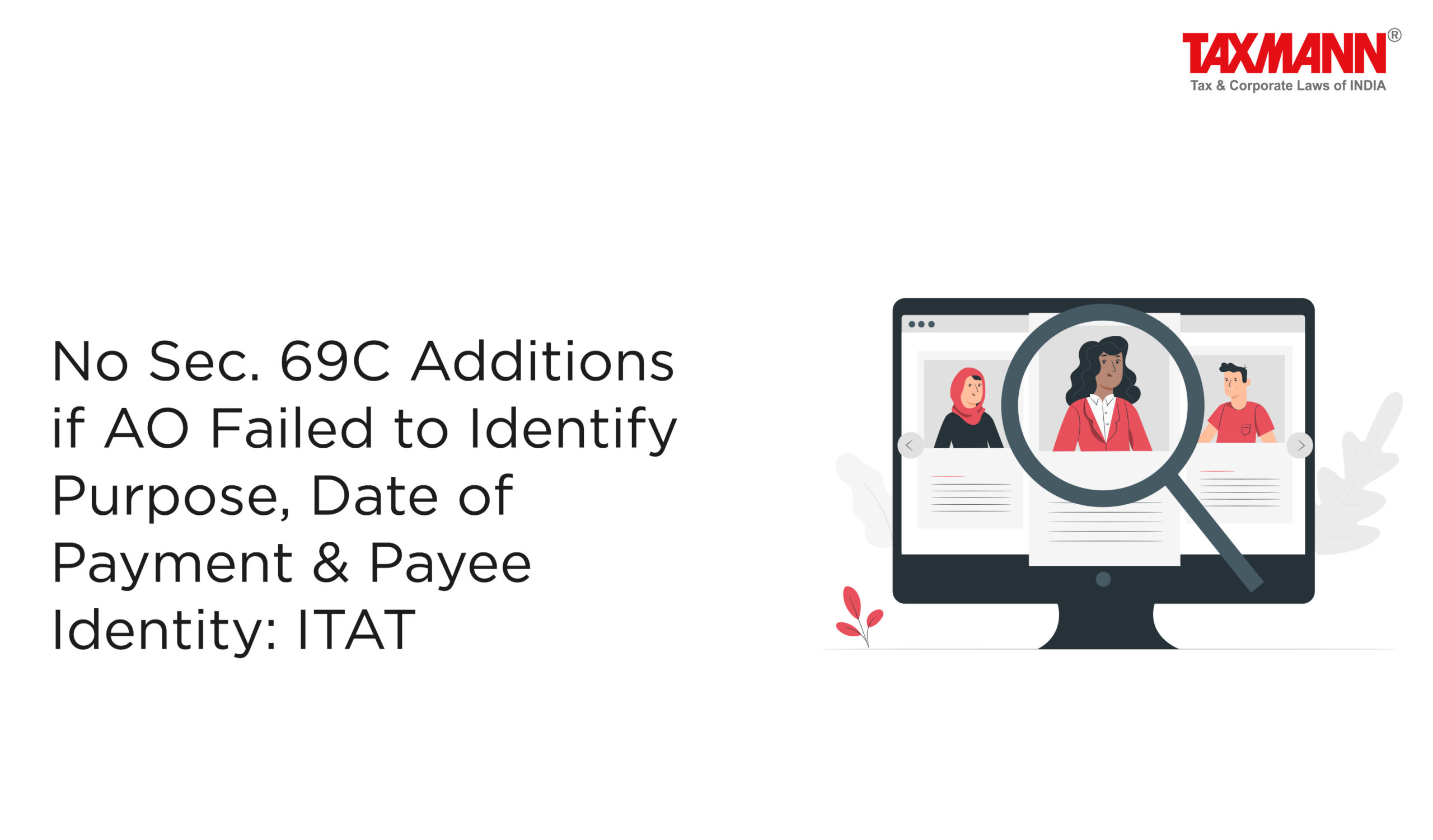No Sec. 69C Additions if AO Failed to Identify Purpose, Date of Payment & Payee Identity: ITAT
- Blog|News|Income Tax|
- 2 Min Read
- By Taxmann
- |
- Last Updated on 5 July, 2023

Case Details: Aurum Platz (P.) Ltd. v. Deputy Commissioner of Income Tax - [2023] 152 taxmann.com 85 (Mumbai-Trib.)
Judiciary and Counsel Details
-
- Ms Kavitha Rajagopal, Judicial Member & Prashant Maharishi, Accountant Member
- Shailja Rai, CIT DR for the Appellant.
- Sashi Tulsiyan, DR for the Respondent.
Facts of the Case
A search under section 132 was conducted on the premises of the assessee group. A word document was found on the computer of the accountant, which contained a declaration that the administration manager was carrying cash of Rs. 20 lakhs for purposes of payment for purchases. A statement was recorded under section 132(4), wherein the administrator manager stated that the document pertained to cash delivery to an electrical contractor.
Unsatisfied with the explanation, the Assessing Officer (AO) proceeded to make additions to the income of the assessee under section 69C.
Aggrieved by the order, the assessee filed an appeal to CIT(A). The CIT(A) upheld the AO’s order, and the matter reached the Mumbai Tribunal.
ITAT Held
The Tribunal held that it was an undisputed fact that the word document found on the computer during the search proceedings mentioned the payment of Rs. 20 lakhs for purchases.
However, the AO could not identify the purpose of payment, the date of making such payment, by whom such payment was authorized and the identity of the person to whom such payment was purportedly made. No evidence was placed on record to corroborate such loose documents and prove that payment was actually made.
In the instant case, the document the department relied upon was not a part of regular books of account but merely a loose document that did not even have a date of such transaction, which are essential features of an authentic document. No doubt it is a computer document, so there is no question of any signature or handwriting, but the same also needs to be corroborated.
Accordingly, AO was directed to delete the addition made under section 69C.
Disclaimer: The content/information published on the website is only for general information of the user and shall not be construed as legal advice. While the Taxmann has exercised reasonable efforts to ensure the veracity of information/content published, Taxmann shall be under no liability in any manner whatsoever for incorrect information, if any.

Taxmann Publications has a dedicated in-house Research & Editorial Team. This team consists of a team of Chartered Accountants, Company Secretaries, and Lawyers. This team works under the guidance and supervision of editor-in-chief Mr Rakesh Bhargava.
The Research and Editorial Team is responsible for developing reliable and accurate content for the readers. The team follows the six-sigma approach to achieve the benchmark of zero error in its publications and research platforms. The team ensures that the following publication guidelines are thoroughly followed while developing the content:
- The statutory material is obtained only from the authorized and reliable sources
- All the latest developments in the judicial and legislative fields are covered
- Prepare the analytical write-ups on current, controversial, and important issues to help the readers to understand the concept and its implications
- Every content published by Taxmann is complete, accurate and lucid
- All evidence-based statements are supported with proper reference to Section, Circular No., Notification No. or citations
- The golden rules of grammar, style and consistency are thoroughly followed
- Font and size that’s easy to read and remain consistent across all imprint and digital publications are applied



 CA | CS | CMA
CA | CS | CMA
